#Manic Street Preachers 1994
Text
Your idols speak so much of the abyss
Yet your morals only run as deep as the surface
#Ifwhiteamericatoldthetruthforonedayit'sworldwouldfallapart#manic street preachers#msp#msp Ifwhiteamericatoldthetruthforonedayit'sworldwouldfallapart#manic street preachers the holy bible#msp 1994#manic street preachers 1994#manic street preachers Ifwhiteamericatoldthetruthforonedayit'sworldwouldfallapart#the holy bible#sean moore#james dean bradfield#richey james#richey edwards#nicky wire#Spotify
9 notes
·
View notes
Text
today i bring you: short essay on one of my favourite albums of all time
#letters#did i lift pieces of my thesis into this well yes maybe. reduce reuse recycle#manic street preachers#manics#the holy bible 1994
103 notes
·
View notes
Photo

★
#by far one of my favourite pictures of him#richey edwards#manic street preachers#manics#90s#1994#2014 indie#indie tumblr#indie#aesthetic tumblr#aesthetic#people#grunge#grunge tumblr#tumblr grunge#grunge revival#2014 grunge#tumblr 2013#2013 tumblr#tumblr 2014#2013#grainy
166 notes
·
View notes
Text
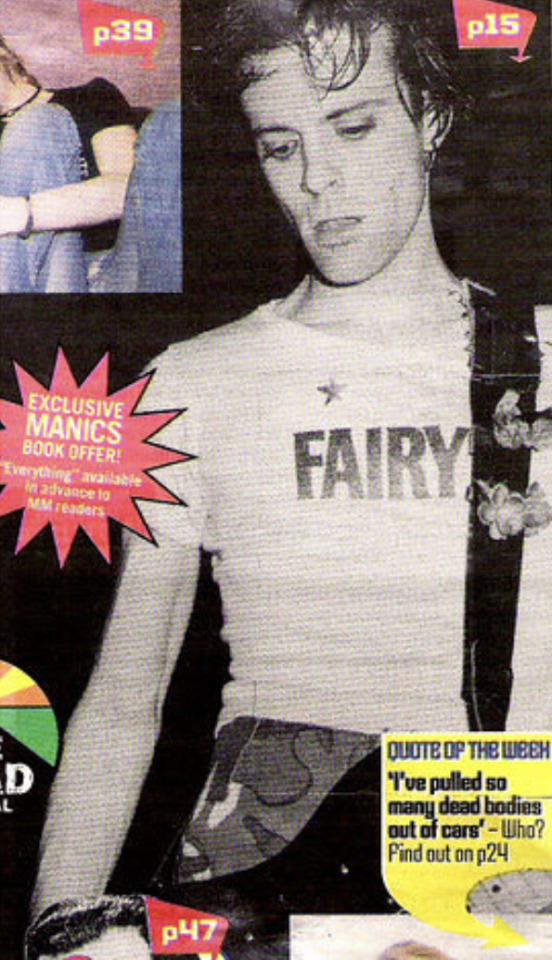
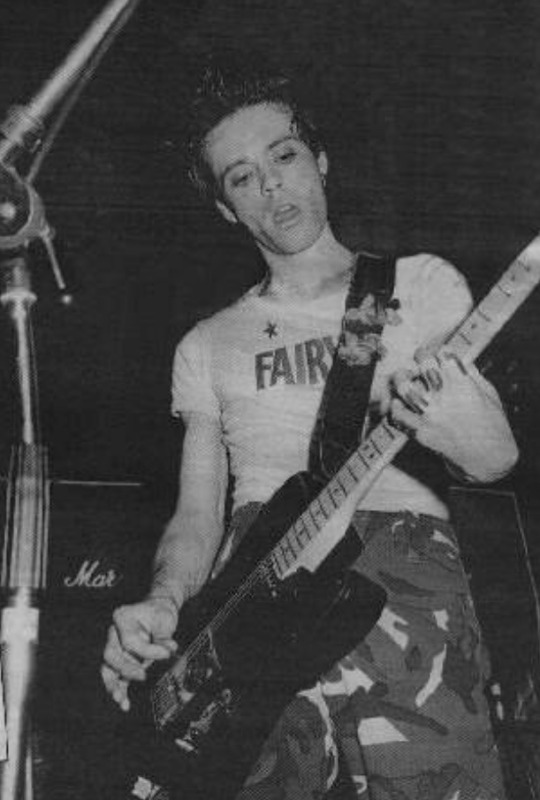
197 notes
·
View notes
Text
Yes (Remastered) - Manic Street Preachers
7 notes
·
View notes
Text

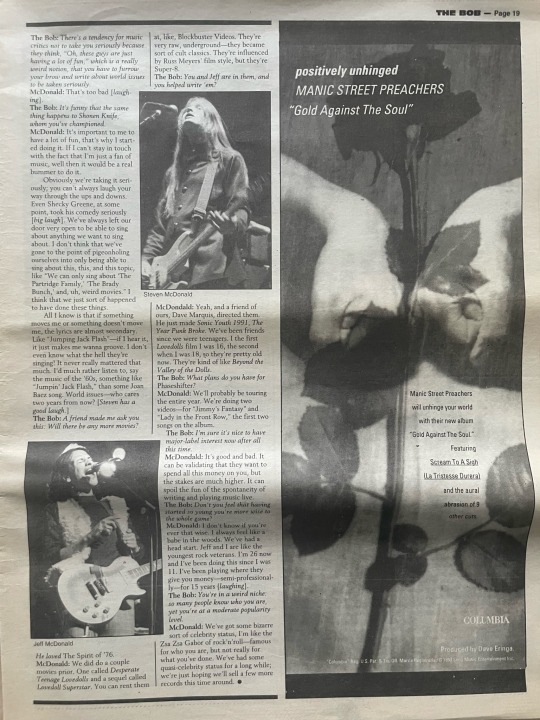
Article from The Bob, winter 1994. Article by Shannon Harrison, photos by Marty Perez.
0 notes
Text
youtube
Manic Street Preachers - Ifwhiteamericatoldthetruthforonedayit'sworldwouldfallapart
#manic street preachers#ifwhiteamericatoldthetruthforonedayit'sworldwouldfallapart#james dean bradfield#richey edwards#nicky wire#sean moore#glam rock#classic rock#the holy bible#1994#Youtube
1 note
·
View note
Text
In un messaggio vocale un mio fratello aggiunto mi ha detto: "non farti operare in Agosto che poi devi stare nel letto con il caldo".
Ma io ho già caldo ora @kon-igi e non sto scherzando. Ripeto, non sto scherzando.
Bonus track: Die in the summertime (Manic Street Preachers, Holy Bible, 1994).
14 notes
·
View notes
Text
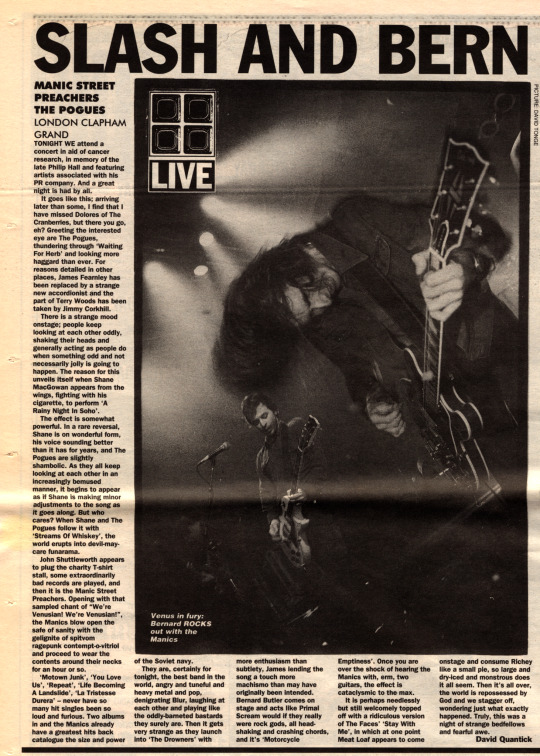
Live review of Manic Street Preachers at London Clapham Grand. NME, 12 March 1994. Scanned by me.
📸: David Tonge
19 notes
·
View notes
Note
dw companions on the blur-oasis kinsey scale (with exclusively blur listener at 0 / exclusively oasis listener at 6):
rose - 5, oasis listener, incidentally blur listener; martha - 0 (i dont think she has/had much of a stake in the britpop feud but she gives off 13 vibes); donna - 6 (again, not much stake in either band, but would prefer oasis songs to blur); amy - 4, oasis listener, more than incidentally a blur listener); clara - 3, equally an oasis + blur listener; bill - 1, blur listener, incidentally an oasis listener
(haven't rewatched thirteen's run recently enough to give full judgement but, on instinct alone, yaz is probably a 1 or 2)
further notes:
- martha's a pulp listener, at least in the sense of enjoying different class. and i know i said she had 13 vibes, but there's also a little bit of the great escape in there as well.
- clara's a fan of the stone roses, i know this in my heart to be true. there's probably some suede listening going on too.
- (though i am loath to categorise them as britpop, they're of the same era + adjacent scene) amy's not necessarily a manic street preachers fan BUT some of their singles show up in her cd rack (little baby nothing, roses in the hospital, you stole the sun from my heart)
*not to bog this very serious analysis down with academic lit, but read this quote from rhian e. jones about the manics + adolescence and TELL ME is doesn't feel vaguely amycoded: "In part this is due to the timeless nature of the teenage angst captured on the album (the holy bible, 1994), but it also reflects that peculiar millennial dislocation whereby many more young people currently seem unable to fully extricate themselves from adolescence." -- the quote is about thb which isnt very amy, but generation terrorists has a similar feel of stunted youth and is more along the lines my view of her angst listening
- on that note, it's possible that amy would've been too young during the 90s to have much of a stake in britpop at all + she's a teenager in the 2000s, so she's almost definitely an arctic monkeys listener (who are also not britpop but feel adjacent)
(^^ can you tell im making an amy's cds playlist?? and im taking it incredibly seriously)
IVY, MY DEAR FRIEND IVY, YOU HAVE REGENERATED!!!!! I recently saw a Holy Bible record and thought of you <3 I AGREE WITH ALL OF THIS (it reads like an academic paper) My favourite bit must be Martha the Pulp listener Martha <3 AND I'M ALSO A 4 (girl who's had 3 amy pond related urls so far) AND I'VE ALSO BEEN PLANNING AN AMY'S CDs PLAYLIST!!!!!! <3333333333 (she 100% has Nobody's Daughter on repeat)
2 notes
·
View notes
Text
Lebensraum
Kulturkampf
Raus raus
Fila fila
Revol
#Revol#Manic street preachers#msp#manic street preachers revol#the holy bible#manic street preachers the holy bible#msp 1994#manics#manic street preachers 1994#james dean bradfield#nicky wire#sean moore#richey james#richey edwards#richey manic#Spotify
2 notes
·
View notes
Text
i know why im writing extremely dense convoluted arguments about manic street preachers' critically acclaimed 1994 album the holy bible but why are YOU writing extremely dense convoluted arguments about manic street preachers' critically acclaimed 1994 album the holy bible. and citing derrida
12 notes
·
View notes
Text
Recommending Albums 1 & 2
So technically, calling this either "Recommending Albums 1" or "Recommending Albums 2" is wrong, because my recommendation of In the Aeroplane Over the Sea was called “Recommending Video Essays #8” because I didn't know if I was ever gonna recommend another album, especially so soon. However, it's still the first instance of "Recommending Albums" as a title. So what I'm gonna do is cheat and just say that this is 1 & 2.
Recommendation 1 can be found here.
Recommendation:
The Holy Bible 20 – Manic Street Preachers
The Holy Bible 20 (or just The Holy Bible) is an album that I haven't ever really heard many people talk about. To me this is shocking, and to the annoying RateYourMusic dweller part of me, is just downright unacceptable. It also may not be that shocking in reality.
The Holy Bible came out in 1994, a single year filled with so many unbelievably influential and important albums like Illmatic by Nas, Dummy by Portishead, The Downward Spiral by Nine Inch Nails, Grace by Jeff Buckley, Ready to Die by The Notorious B.I.G., Weezer's self-titled Blue Album, Superunknown by Soundgarden, MTV Unplugged in New York by Nirvana, and Diary by Sunny Day Real Estate. In the years before 1994 (most notably for me), My Bloody Valentine's Loveless (1991) became the singular Shoegaze album, A Tribe Called Quest's Low End Theory (1991) largely dictated what Hip-Hop would sound like for the coming decades, and Nirvana would inform the world about Seattle grunge rock with Nevermind (1991) and In Utero (1993). This train of revolutionary albums chugged through to the end of the 20th century as well with Radiohead's The Bends (1995) and Ok Computer (1997), Outkast's ATLiens (1996) and Aquemini (1998), Elliot Smith's Either/Or (1997), Lauryn Hill's The Miseducation of Lauryn Hill (1998), Neutral Milk Hotel's In the Aeroplane Over the Sea (1998), etc. This single decade spawned so many of the most recognizable, popular, and highest rated albums of all time, so to be drowned out among the all time greats is maybe to be expected.
But, The Holy Bible 20 should absolutely be one of these recognizable classics, and absolutely deserves to be talked about as much as Rage Against the Machine's self titled debut or Nine Inch Nails' The Downward Spiral.
The mention of these albums specifically are of particular interest for comparison as they share a lot with The Holy Bible. Rage Against the Machine is a really easy comparison to make. They're pretty similar sounding albums, although Rage Against the Machine lays way more into the metal side of Punk Rock. The Holy Bible has some really catchy riffs both in the lead guitar and bass and is just as head-bang-able as any good Punk Rock album should be. It's instruments are more often than not really clear and bright for the genre, only using heavy distortion and loud, complex sound for the choruses of songs where the energy goes way up. It's never cheery, but it definitely reflects the bands British origins. James Bradfield's voice very clearly and sharply cuts through the instrumentals when he sings and gives the most to the album's shockingly clean sound.
Both of these albums go through song-by-song, serving almost as revolutionary crys for the disgruntled group of mostly suburban high-school aged kids in the nineties who sees the flaws and cruelties of modern capitalist society and wants change. Largely aiming at the most relevant target around for this, white America and the institutions they created, the albums (in the most simple reading) go “Fuck off, I see what you're doing here and how you marginalize people. Die.” For Rage Against the Machine this most notably comes in the form of comparing the hardcore right wing accelerationists like the KKK and contemporary neo-nazi movements and modern police forces and the people who work for them, and the racial injustices spawned out of the idea of white supremacy. The album is also a call to arms to take back power for the people. “We gotta take the power back!” For The Holy Bible it's drawing the comparison between modern (for the nineties) gender politics and the systematic marginalization of anyone considered other, and a telling of how the constant re-enforcement of the “normal” affects those considered abnormal. The Holy Bible takes a more poetic approach to the overall presentation of the message compared to Rage Against the Machine, which is mostly just a really banging call to arms.
Potential Content Warning for Suicide and Self-Harm
While this an accurate summary to The Holy Bible 20 it misses the some of the finer points of the album that allowed me to make the kind of pretentious sounding comparison to Nine Inch Nails' The Downward Spiral; an album largely about Trent Reznor's declining mental state in the face of a society who seems content with eating itself alive to keep in it's direction. The Holy Bible 20 was mostly written by Richey Edwards, who served not as the bands vocalist or a player of the instrumentals, but as the band's spokesperson and main lyricist along with the band's bassist Nicky Wire. I don't know a lot about Richey, but what I do know is that Richey was very open about having pretty severe depression and self-harm issues in interviews and from what I understand had an issue with alcohol abuse. Richey has been a missing person, since February 1, 1995, and has been legally presumed dead since 2008.
While a lot of songs can be read as, and are, really powerful critiques of how the systems of power in today's society marginalize anyone deemed unfit to be the normal, the perspective of a lot of what the album is about changes when you know that most of it was written from the perspective of someone who was really struggling with themselves mentally and would go missing 6 months after the album was released. It's not just an example of how these injustices and hardships can hurt and negatively shape and mold people into broken people, it's a first hand account. This makes a lot of the lyrics on the album even more sad and tragic than they already apparently are, and adds a new context to the entire album.
The first track “Yes” is a critique of the mind set consumerism creates for both the rich and poor, but with knowing what Richey went through, the account of the emptiness of depression starts showing through. “She is Suffering” and “4st 7lb” transforms the the messages about beauty standards into really haunting accounts of problems with self-image and self-worth. This in my opinion is what really makes this album special. It is a biting, unrelenting, extremely blunt critique of the system that disregards and hurts people for the feeling a uniform feeling of normalcy that anyone can pick-up and understand that is formed and shaped around a hidden perspective of someone that can't seem to help themselves. It's really sad, really haunting, and all of it is put over some of the most catchy riffs of the 90's.
The music is great, and really makes me feel like a kid from suburban Illinois in 1996 who really hates going to church, but what it has to say both on the surface and the more sub-textual accounts is what really makes this worth listening to.
It's one of my absolute favorite albums of all time. 10/10.
Other Recommendations:
I just talked about them a little bit, but both Rage Against the Machine (1992) and Nine Inch Nails' The Downward Spiral (1994) are really worth listening to if you even just like music. I personally like The Downward Spiral more because of how unique it still sounds to this day, so if you can only listen to just one I would pick that one.
But don't pick just one. Listen to them both. Please listen to them both. Please. Okay thank you bye <3
#manic street preachers#the holy bible#the holy bible 20#recommendations#album review#the downward spiral#rage against the machine#please tell me if there are any errors in my writing thanks <3
2 notes
·
View notes
Text

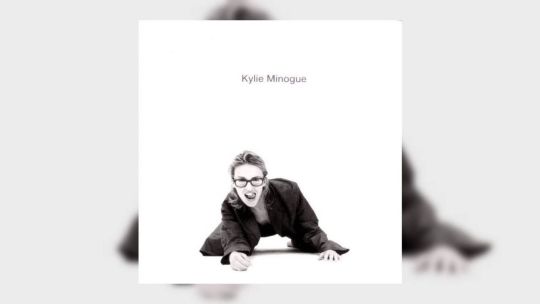
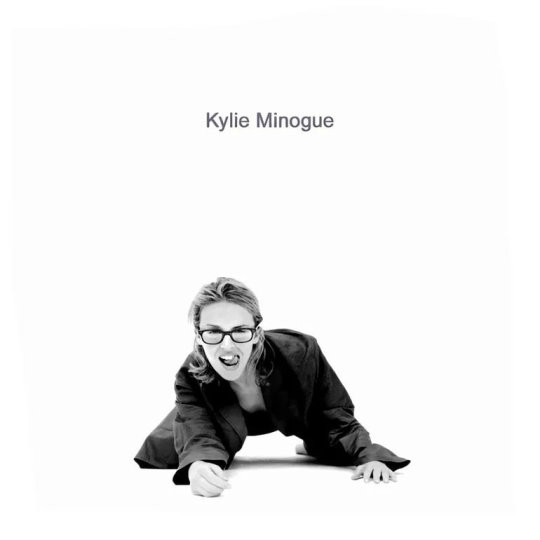

This fifth studio album was released respectively under the labels of Deconstruction records in the world and Mushroom records for Australia and New Zealand on September 19, 1994. As a result of the new contract with her record company, Kylie Minogue collaborated with producers like Dave Ball , Ingo Vauk, Brothers in Rhythm, Manic Street Preachers and Rob Dougan.
#Kylie Minogue#Confide In Me#Put Yourself In My Place#Where Is The Feeling#Surrender#Time Will Pass You By#If I Was Your Lover#Dangerous Game#Automatic Love#Falling#Where Has The Love Gone#The One and Only Kylie
13 notes
·
View notes
Photo
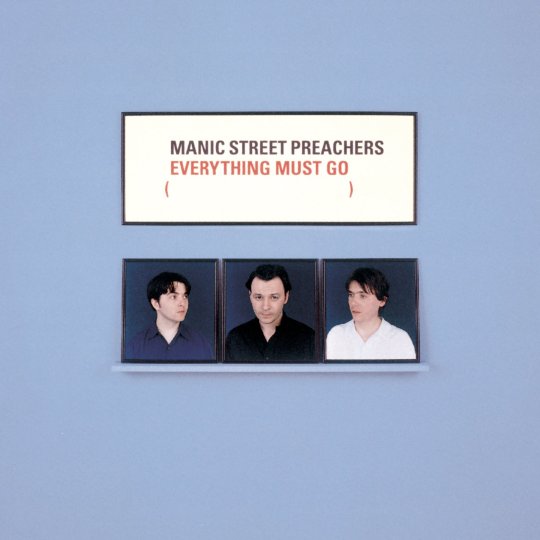
Storia Di Musica #223 - Manic Street Preachers - Everything Must Go, 1996
La storia di oggi nasce nel 1986 per un anniversario: i 10 anni dalla formazione dei Sex Pistols. Un gruppo di ragazzi di Blackwood, nel Galles, decide di formare una band nel ricordo delle gesta degli irriverenti paladini del punk. Si chiamano all’inizio Betty Blue, che non è propriamente un nome che fa pensare al punk, ma quando durante un pomeriggio da busker a Cardiff di James Dean Bradfield, leader, cantante e chitarrista, un tizio sentendolo suonare gli chiede: “What are you, boyo, some kind of manic street preacher?” decidono di cambiarlo. Nascono così i Manic Street Preachers, un gruppo che ha ormai oltre trenta anni di vita musicale e che ha una parabola pressoché unica nel panorama britpop, movimento che sinteticamente sto raccontando in queste domeniche maggiaiole. Quando nel 1988 pubblicano il primo singolo, autoproducendolo, Suicide Alley, sono un terzetto composto da Bradfield, Sean Moore alla batteria e Nicki Wire al basso e anche seconda voce. C’è però un quarto componente “occulto” che in un primo momento era l’organizzatore delle trasferte e autista ufficiale, Richey Edwards, che contribuisce dapprima ai testi per poi scoprirsi talentuoso chitarrista, tanto che dà una svolta decisiva alla band: dapprima con White Riot, che riporta sulla scena musicale inglese la “rivolta” dopo gli anni dei Clash e connota, come inizieranno a scrivere le riviste musicali, i MSP come leftist (aggettivo che anzi riempie di orgoglio i nostri, non ne faranno mai problemi delle loro idee politiche e nel 2001 suoneranno al Teatro Karl Marx di L’Avana con Fidel Castro nel pubblico). Ma la svolta è anche estetica e situazionista: durante un concerto Edwards si scrive sul petto “4 Real” con una lametta per dimostrare la totale credibilità del gruppo agli ideali. Nel 1992 il primo album, Generation Terrorists, arriva addirittura nella Top 20, e la band per mesi lo annuncia come il loro “prima e unico album”. In verità è l’ennesima trovata di Edwards, e ha già canzoni notevolissime come Slash ‘n’ Burns e la magnifica Motorcycle Emptiness (che va segnalata anche per l’orgoglio del loro accento gallese, evidentissimo nel modo in cui Bradfield pronuncia “motorcycle”). Di fatto la band non si scioglie e bissa il successo con Gold Against The Soul, che addirittura arriva alla posizione numero 8. Ma il successo coincide con un periodo nerissimo per la band: prima muore il manager e amico d’infanzia Philip Hall, poi Edwards va in depressione, soffre di anoressia e di alcolismo. Nel modo più tragico, alla vigilia del primo tour americano a sostegno di The Holy Bible (1994), nel febbraio del 1995 Richey Edwards scompare, senza lasciare nessuna traccia, nel vero senso della parola perchè ancora oggi la sua vicenda è in parte irrisolta, sebbene la Polizia Inglese lo abbia ritenuto “presunto morto” nel 2008. La band in un primo momento decide di fermarsi, ma è soprattutto Nicki Wire a spronare gli altri a continuare: in lunghe registrazioni per tutto il 1995 e primi mesi del 1996, ne tirano fuori un disco che si distacca molto dal suono “tipico” dei Manics (così chiamati dai sempre più numerosi fan) e che li fa diventare portabandiera del britpop. Everything Must Go (1996) sembra già dal titolo un invito a passare oltre, e lo fa regalando un suono scintillante, arioso e fresco sebbene metà dei testi delle canzoni siano opera di Edwards. Il disco è costruito sul loro sguardo critico sulla società contemporanea: lo scimmiottare gli Stati Uniti in Elvis Impersonator: Blackpool Pier (che inizia così: American trilogy in Lancashire pottery\Is so fucking funny, don't you know) o nella fortissima Enola\Alone (che secondo Wire si ispira addirittura a Camera Lucida di Barthes); Small Black Flowers That Grow In The Sky racconta dei maltrattamenti di animali in cattività, The Girl Who Wanted To Be God, scritta da Edwards, prende il titolo da una composizione di Sylvia Plath, che probabilmente Edwards sentiva molto affine al momento. Interiors è dedicata a Willem de Kooning, il grande pittore astrattista, che soffriva di Alzheimer, Kevin Carter alla vita dell’omonimo famoso fotografo che documentò le carestie africane degli anni ‘80 e ‘90 (vinse il premio Pulitzer per la fotografia con lo scatto, drammatico, di una bambina scheletrica inseguita da un avvoltoio durante una carestia nel Sudan). Due singoli, la stupenda A Design For Life e Everything Must Go vanno in classifica, così come l’album, che debutta direttamente al numero due e più volte durante il 1996 va in vetta alla classifica. Nel 1997 vince i due premi più prestigiosi ai Brit Awards, album dell’anno e band dell’anno, e nel 1996 il New Musical Express lo nomina disco dell’anno; ancora oggi considerato un classico della musica britannica, tanto che è stabilmente in tutte le classifiche dei migliori dischi inglesi di sempre. Il successo viene bissato due anni dopo da This Is My Truth Tell Me Yours, trascinato dal singolo If You Tolerate This Your Children Will Be Next, i cui primi versi dicono “The future teaches you to be alone\The present to be afraid and cold\"So if I can shoot rabbits then I can shoot fascists". La band con alti e bassi continua ancora oggi ad avere un certo seguito, con picchi di popolarità come quando nel 2007 con Nina Persson dei Cardigans ottenne successo internazionale con Your Love Alone Is Not Enough. Un disco da riscoprire e una band da riascoltare.
25 notes
·
View notes
Text

me making my kitties listen to the manic street preachers seminal 1994 album the holy bible at 9 in the morning
4 notes
·
View notes